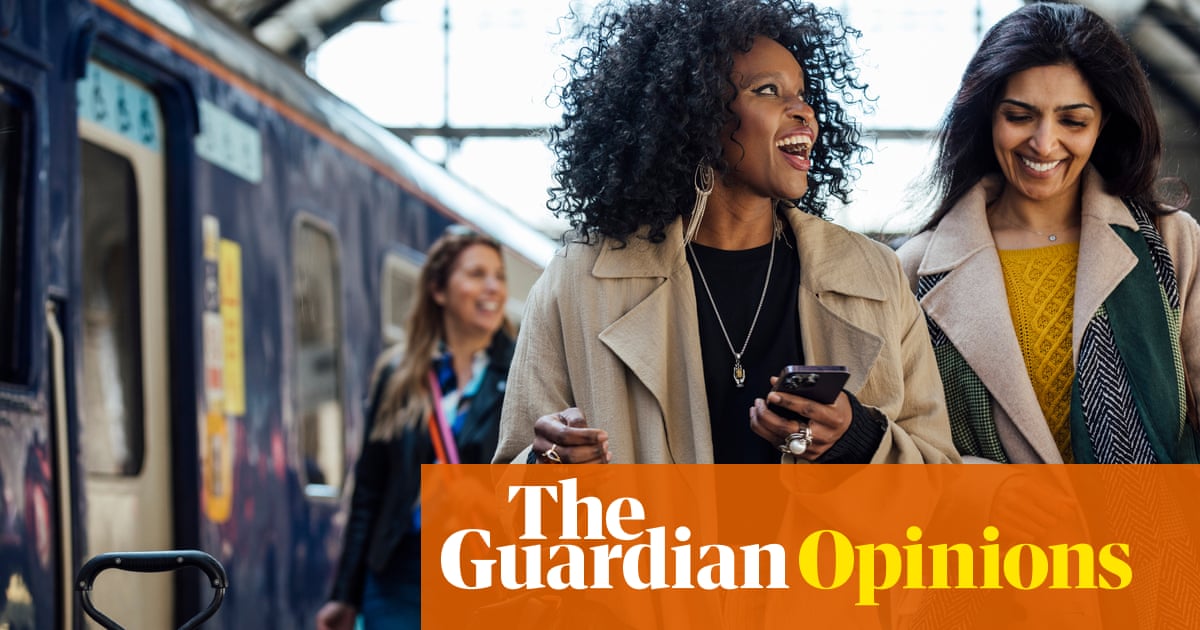
In a captivating series of maneuvers that continue to intrigue me, my teenage son, aged 16, skillfully negotiated a change in plans that resulted in us swapping a four-day excursion to Devon for a whirlwind 13-hour adventure in Broadstairs on the picturesque Kent coast. Every train ride, meeting, and arrangement felt like a high-stakes rollercoaster ride, knowing that missing any would render the entire experience, along with the surrounding weeks, somewhat meaningless. Yet, against all odds, we managed to catch every train, attend every meeting, and enjoy our respective activities – he watched Match of the Day with his friend while I ventured to an Afrobeats club night with mine. The following morning, he devoured vegan bacon at an impressive speed, while I quietly ignored my overwhelming fatigue. Ironically, he later complained about feeling sleep-deprived on our journey back home. However, at that point, I found myself surprisingly energized, having experienced a significant epiphany: the entire escapade exuded a sense of pre-pandemic normalcy.
Setting aside the lingering effects of Long Covid, the aftermath of the pandemic has left a subtle, negative impact. Initially, in the summer of 2020, there was hope for substantial societal transformations: a potential shift in recognizing the true value of essential jobs, a reevaluation of how we measure individuals’ worth in society beyond monetary compensation, and a chance for a more cohesive and equitable community. There was anticipation of a deliberate reconstruction of life along new paradigms, where preferences between air travel and nature’s melodies, or office routines and homemade sourdough, would guide our choices. However, these optimistic visions proved to be mere illusions.
Undoubtedly, some restructuring occurred. The lockdowns enforced a ban on all non-essential activities, leading to the introduction of meticulous considerations post-restrictions. Questions arose regarding the risk of contracting Covid, the vulnerability of loved ones, and the importance of social interactions. The notion of gathering in crowded spaces with unfamiliar faces for mere amusement seemed ludicrous. The pandemic prompted a shift towards more practical attire and a reevaluation of social norms. People began dressing for comfort and readiness, as if prepared to flee or retreat to bed at any moment. The era of Crocs and athleisure emerged, emphasizing functionality over extravagance.
Short trips transformed into complex decisions, while longer journeys became even more daunting, compounded by additional logistical challenges. Months of testing and quarantine instilled a hesitancy to venture far from home, fearing the possibility of self-isolation. The pandemic altered the perception of time and distance, demanding a more substantial commitment to travel. The days of spontaneous exploration seemed distant, reminiscent of the caution exercised by explorers like Christopher Columbus.
The impact was amplified for Generation Alpha, for whom the virtual realm often overshadowed physical experiences. The preference for online activities over real-world engagements became a common theme. Why visit a cinema when streaming services like Netflix offer convenience? Why watch Netflix alone when virtual watch parties provide a shared viewing experience? The pandemic era witnessed a phase where even feeding Cheetos to squirrels seemed like a more appealing outing than traditional social gatherings.
Reflecting on our brief sojourn, I found myself deeply immersed in the moment. The DJs, Mr. Casual and Agent Abstract, and the quaint charm of Broadstairs left a lasting impression. I yearned for more nights like these, characterized by spontaneity, time constraints, and a flurry of train rides. Upon awakening, I embraced a newfound resolve to explore new destinations, embodying the carefree spirit of the pre-pandemic era.
